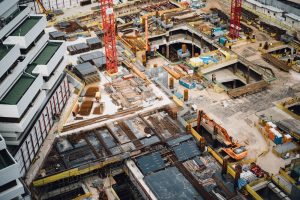Construction managers are responsible for the planning, coordination, and execution of construction projects. They work with clients, architects, engineers, and subcontractors to make sure that projects are completed on time and within budget. But this isn’t all they do! Construction managers also must ensure that projects are safe and meet all of the relevant codes and regulations.
This important role is why construction managers are in high demand. They are responsible for ensuring that projects are completed efficiently and on time, and they are an integral part of any construction project.
Construction Manager Responsibilities
There are a variety of responsibilities that fall under the role of a construction manager. Some of the most important ones include:
Planning and coordination: This includes creating project plans, coordinating with subcontractors, and ensuring that all aspects of the project are on schedule.
Budgeting and cost control: Construction managers are responsible for budgeting and controlling costs throughout the project.
Safety: Construction managers must ensure that all construction projects are safe and meet all relevant codes and regulations.
Quality control: Construction managers must also ensure that all construction projects meet quality standards.
Client relations: Construction managers must maintain good relations with clients and keep them updated on the progress of the project.
Managing staff: Construction managers may also be responsible for managing staff on the project.
Skills and Qualifications
Construction managers need to have a variety of skills and qualifications in order to be successful in their roles. Some of the most important ones include:
1. Project Management Skills
Construction managers need to be able to effectively manage and coordinate large construction projects. This includes being able to handle multiple tasks simultaneously and meet deadlines. Management skills are essential for success in this role, as is the ability to effectively communicate with clients and other stakeholders.
2. Technical Skills
Construction managers need to be familiar with a variety of construction-related technologies and equipment. They must also be able to read and interpret blueprints and other technical documents. Technical documents can be complex, so having strong technical skills is essential for success in this role. Most construction managers have a degree in civil engineering or a related field and can typically expect to have at least five years of experience in the construction industry.
3. Leadership Skills
Construction managers must be able to effectively lead and motivate their teams. They must also be able to resolve conflicts and handle difficult situations. Strong leadership skills are essential for success in this role.
Leading a team is no easy feat, but with the right skillset, construction managers can successfully oversee projects and motivate their teams to reach common goals. Part of being a leader is being a kindhearted but firm voice for their team. Construction managers should have a clear vision and proper people skills to get the most out of their team.
4. The Ability to Keep Others Safe
Construction managers must be familiar with safety procedures and regulations. They must also be able to ensure that all workers on the construction site are following safety protocols. Safety skills are essential for construction managers, as any mistake can lead to serious injuries or even fatalities.
Construction Managers Are Crucial for Success of All Construction Projects
When you need a new home or office building, the success of the entire project hinges on the skills of the construction manager. This professional is responsible for ensuring that the construction process goes smoothly and that the finished product meets all of your expectations.
Why? Because the construction manager is the one who coordinates all the workers, subcontractors, and suppliers involved in the project. He or she makes sure that everyone is on schedule, knows what they’re supposed to be doing, and has the materials they need. In short, the construction manager is the glue that holds the project together.
A good construction manager can be the key to a successful construction project. All major construction projects should have a qualified construction manager to oversee the process and make sure the project stays on track.
Without a good construction manager, your project is likely to experience delays, cost overruns, and other problems. So, if you’re planning a construction project, be sure to hire a qualified professional to head up the process.




